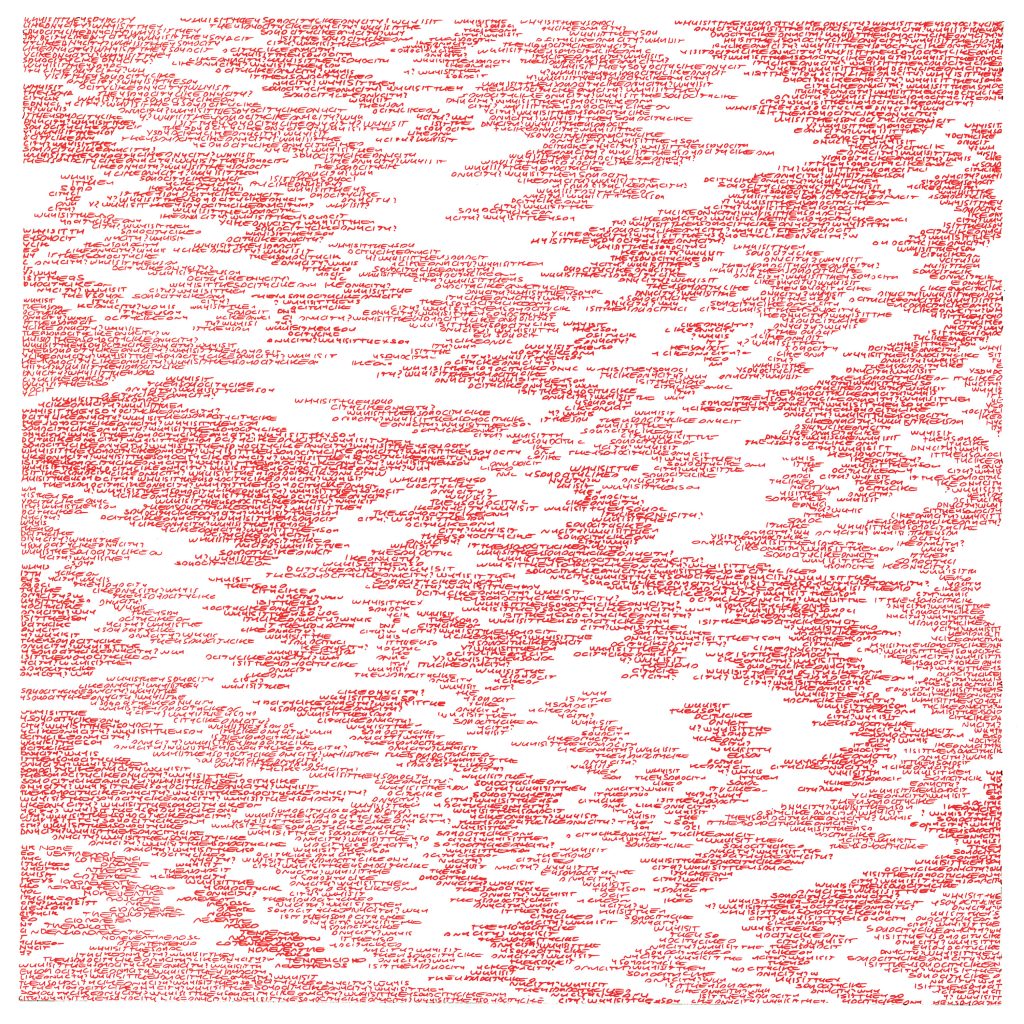
ALE HOP – Why Is It They Say A City Like Any City?
Format: 180gr LP + download card, gatefold / download
Release date: february 4th 2022
https://karlrecords.bandcamp.com/album/why-is-it-they-say-a-city-like-any-city
The new album by the Peruvian-born / Berlin-based experimental artist Ale Hop was conceived in a context of immobility and provides six sonic vignettes that wonder about location, circularity, rootedness and experience. In collaboration with Ana Quiroga, Concepcion Huerta, Daniela Huerta, Elsa M’balla, Felicity Magan, Fil Uno, Ignacio Briceño, KMRU, Manongo Mujica, Moises Horta, Nicole L’Huillier, Raul Jardín, Sukitoa Onamau, Tomas Tello.
Following her explorations on music’s inherent fixation to geographic space and time, be it through the longing of home („Apophenia“ 2019) or scientific magnification of invisible worlds („The Life of Insects“ 2020), Berlin-based Peruvian-born experimental composer Ale Hop’s fourth album, „Why Is It They Say a City Like Any City?“, was conceived in a context of immobility. During the lockdown months, she started a process of remote collaboration, by sending messages, posted from various cities along a South American trip, to thirteen musicians from around the world. She journaled her impressions upon these places to an intimate fictional character while reflecting on matters of time, sound, space, cosmology and colonial memory. The thirteen musicians dialogued with this voice by taking upon the challenge of responding to the messages with sound collaborations.
Field recordings, mouth drumming, drone cellos, electronic loops, arrhythmic rhythms and voices came back from this experiment. Ale assembled them, by layering, twisting and turning, into sonic vignettes that wonder about location, circularity, rootedness and experience, making it the first time she’s set her guitar aside. Expect no answers to the album’s title question, but an innermost psychedelic rumination.
„Despite the technological resources that appear to dilute distances, the simulation of closeness mirrored on the digital space is an emptied body, a state of precarity, a flat surface; unable to withhold an experience of exchange,“ Ale states. „So, I began this project by asking myself, how can we escape from the reduced experience of the virtual? The idea behind this experiment was that my messages and the places they describe could drive the composition, be a catalyzer, a score. Thus, to use geography as a tool to remember and imagine, to allow new soundscapes to emerge.“
„Memory, diffuse and divergent, sometimes reaches out to the future in its search for form, taking shape from the reflections and echoes that come back … like throwing a rock in a pond and having a rock thrown back at you.“
The release of „Why Is It They Say a City Like Any City?“ is accompanied by a 50-min audiovisual installation that will premiere at CTM 2022 Exhibition in January, which was created in collaboration with the Mexican technologist and artist Moises Horta. For this piece, an Artificial Intelligence multi-modal neural network was fed with readings of the messages written by Ale,
synthesizing them into free-flowing images. The visual imagery resembles the way memory works when triggered by words, by traveling freely through mental images unfolding them into openended assemblages of spaces and temporalities.
Ale Hop is the moniker of Alejandra Cárdenas, a Berlin-based, Peru-born artist, researcher, and experimental multi-instrumentalist that began her career in the 2000s in the underground scene of Lima, where she had several pop, punk and electronic bands, and continually collaborated with filmmakers, musicians, and artists.
In her solo music project, she finely blends and crafts a complex repertoire of unorthodox guitar techniques, with psychedelic drones that become visceral and breathtaking live performances. Her studious approach to the subjects covered in her albums and pieces is constantly influenced by her background as a researcher. Cárdenas completed a BA in Art History, her master’s in Sound Studies, further studies in History of Science and Technology, and is currently a doctoral candidate at Berlin University of Arts. She has edited two volumes of the publication „Border-Listening/Escucha-Liminal“ on decolonial, non-western, and Latin American perspectives on sound and listening, and is co-curator of the Berlin-based festival Radical Sounds Latin America.